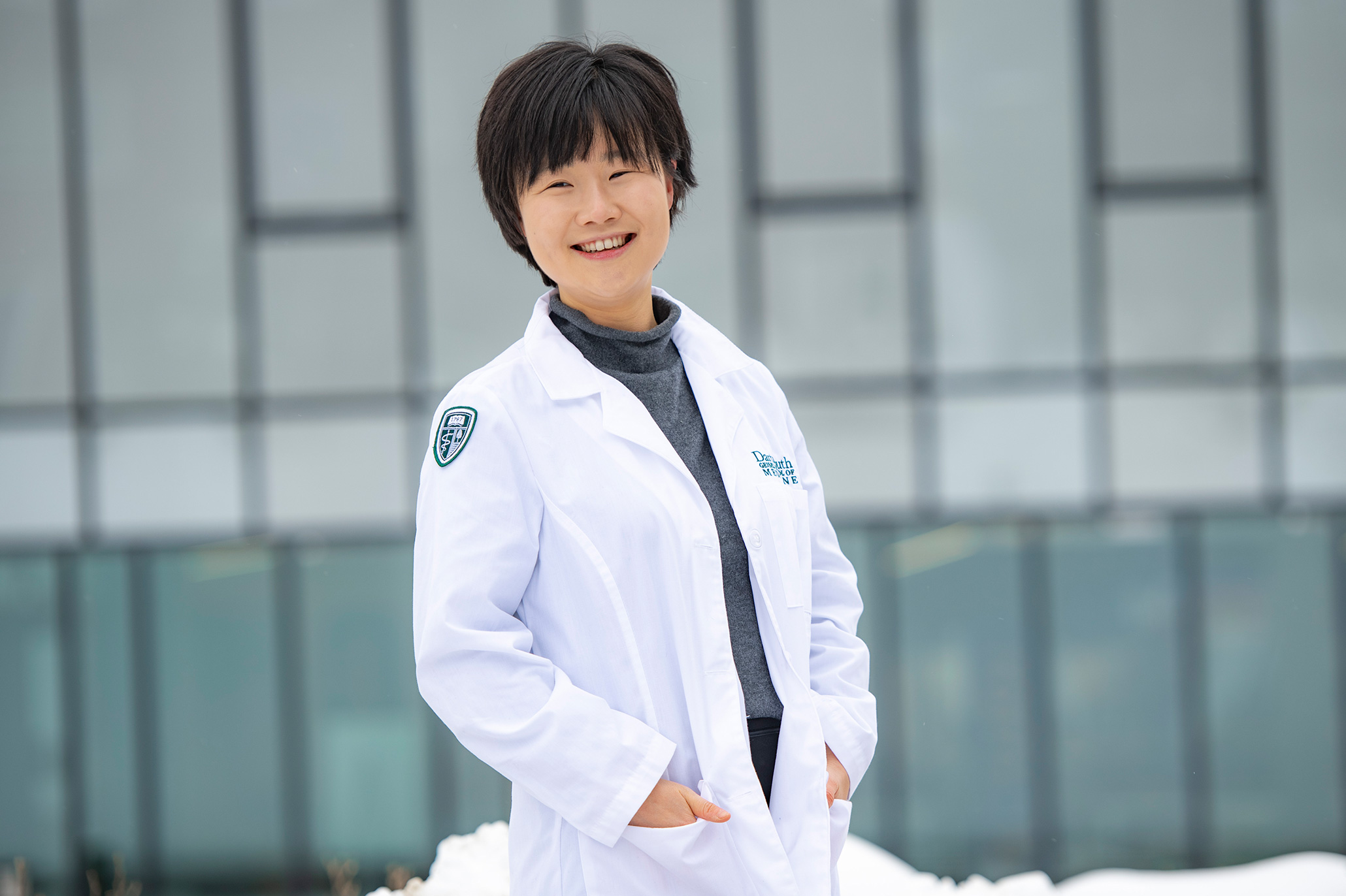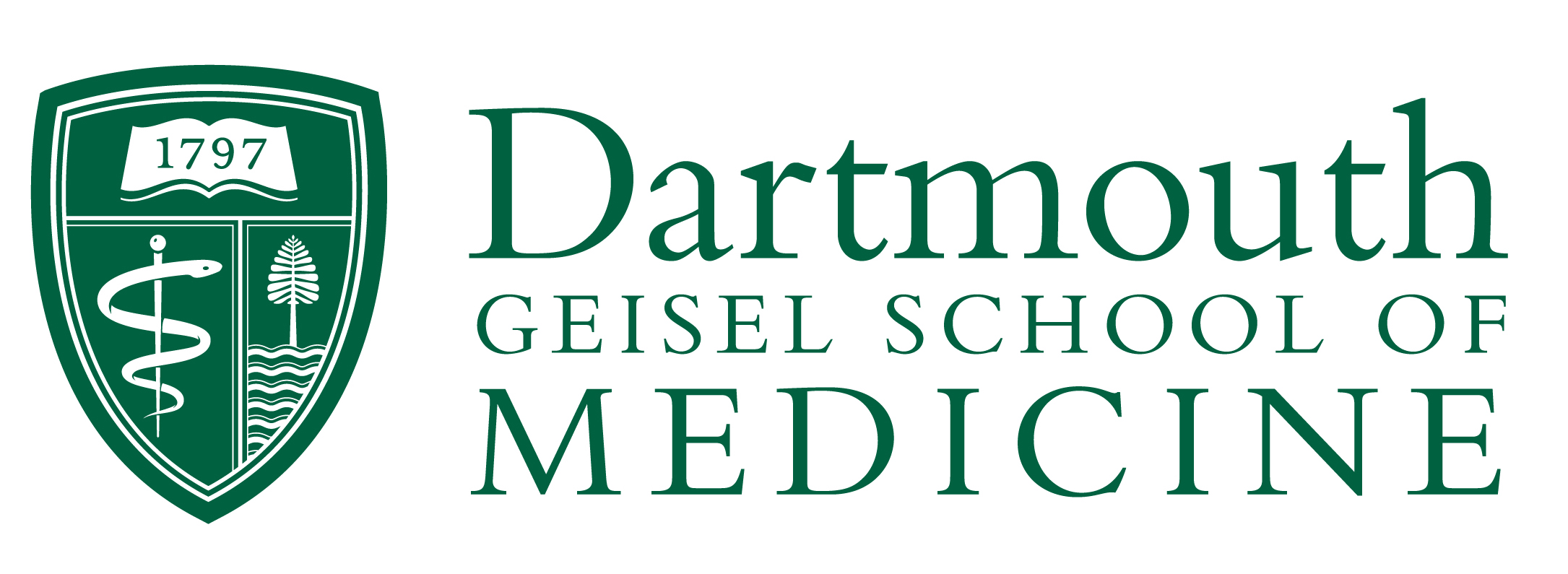
Medical student Boyoung “Bo” Ahn ’23 (D ’18) knows she’ll make an impact in the future, but she often asks herself, “What can I do now?” This was especially true in March 2020, when COVID-19 disrupted in-person learning and her work with the Dartmouth Centers for Health and Aging. She’d been volunteering with people with dementia and their caregivers since her days as a Dartmouth College undergrad and losing that connection was “a huge disappointment.” Remaining in the Upper Valley during the pandemic, Ahn sought other ways to make a difference in the lives of older adults.
Meanwhile, at the Dartmouth Centers for Health and Aging (DCHA)—a collaboration between the Geisel School of Medicine and Dartmouth-Hitchcock—Director Ellen Flaherty, PhD, and Daniel Stadler, MD, director of geriatrics at Dartmouth-Hitchcock, recognized an urgency to plan for potential outbreaks of the virus in area nursing homes.
“We quickly began working with long-term care facilities on COVID preparedness and found out that one of them didn’t have processes for conducting goals of care conversations or for completing advance care planning forms with its residents,” says Flaherty, an assistant professor of medicine, and of community and family medicine at Geisel, and an assistant professor of The Dartmouth Institute for Health Policy and Clinical Practice. “And they asked for our help.”
Thanks to a gift from Charles Hamlin MED ’65, the DCHA was able to provide that help. In 2016, Hamlin, a retired hand surgeon and long an advocate for choice at the end of life, established the Charles Hamlin, MD, Endowment at Dartmouth-Hitchcock to support programs focused on promoting and improving advance care planning. Those funds are now managed by the DCHA, which, Hamlin says, “meets even more of my wishes for these dollars because now medical students would have an opportunity to learn about the fears and hopes that can overwhelm but yet empower individuals to reach for a peaceful death. And truly,” says Hamlin, “what greater gift can the dying leave those they love than a memory of wishes honored? Advance care planning is assuredly one of the most important responsibilities we all must accept. I praise DCHA for their wisdom and energy.”
The Most Important Thing People Can Do
Goals of care conversations help people plan for future health situations and put their decisions into writing, specifically Provider Orders for Life Sustaining Treatment (POLST) and advance directives. At the nursing home that requested help from the DCHA, about half the residents have dementia and are represented by a surrogate decision maker. With students like Ahn eager for opportunities to support those on the front lines of the pandemic, Geisel faculty and DCHA staff developed and piloted a program to train students in conducting goals of care conversations and facilitate completion of POLST forms with surrogate decision makers. Ahn and seven other students volunteered, working with practice surrogates and preceptors from both Geisel and the geriatrics team at Dartmouth-Hitchcock before making their first calls.
“I was nervous,” admits Ahn, “but the team at DCHA and the training they provided were so helpful that I felt prepared for these difficult but crucial conversations. Finding out what’s important to a person and helping them achieve comfort at the end of life is humbling and empowering. Whatever specialty I end up in, I will always work to give people peace at the end of life.”
Through the program, medical students were able to elicit and document care preferences for nearly 80 patients. Flaherty notes, “End-of-life decisions are really hard things for families to talk about, but by not having the conversations they invite even more angst. Getting the POLST documents executed provided some reassurance and security to families during a really difficult time,” Flaherty says.
She continues, “Students have very little exposure to conversations like this. By learning to do it in this context—with older people who’ve enjoyed long lives—they’ll be more prepared when they have to talk about end-of-life decisions with a 30-year-old who has a terminal illness.”
These are the sorts of outcomes Hamlin was hoping for when he made his gift. Hamlin says, “In clinical medical education, it’s all about not losing a patient. In these conversations, students learn a new narrative, which can be beautiful for them. Getting close to death can be a triumph, a closure, not a defeat of a patient’s will or a physician’s skill.”
The Dedication of the Dartmouth Medical Community
After such a successful pilot, the program is continuing this winter, with Ahn serving as coordinator between DCHA and students interested in participating. “I’ve been reminded through this experience that there are so many ways I can contribute, even now, while still a student,” she says.
It’s an experience that was made possible by philanthropy. Flaherty says, “All our work is supported by grants or philanthropy. We have faculty who are innovative, hard-working, and eager to dedicate themselves to the care of older adults. When federal grants dry up it has a significant impact on our ability to implement, test, scale, and disseminate programs like this one. I’m so thankful we have Dr. Hamlin’s support, which enabled us to do this.”
For Hamlin, he gives back to the Dartmouth medical community because of what the medical school gave to him. “Dartmouth gave a chance to a person who’d studied humanities as an undergraduate. It was the gift of acceptance, the gift of faculty who helped me make it through. I loved my surgical practice—Dartmouth gave me a fulfilling life, and that’s why I want to give to Dartmouth.
“To borrow from the Austrian poet Rainer Marie Rilke,” concludes Hamlin, “‘I lived my life in widening circles that spread out around the world. I will not complete the last one. But I give myself to it.’”
To learn more about supporting advance care planning at the Dartmouth Centers for Health and Aging or programs that support medical education at Geisel, please contact Elizabeth Dollhopf-Brown at Elizabeth.Brown@Hitchcock.org.




